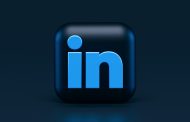So, what’s the buzz in Digital Industries all about? Should you really care about learning Python Big Data Analytics and where it can take you in the next 10 years?
Google, Facebook and Intel have been pioneers in their respective businesses and they continue to remain leaders in the space with their technology innovations. For Google, which started as a web Search engine, it has now transformed its basic product and services to meet modern Marketing, Sales and Customer Experience requirements. Today, Google Data Aggregation is one of the most powerful data lakes in the world. It is driving not just its own AI and ML research labs, but also providing third-party data management services. How did it become a possibility for a Search Engine company to become one of the most powerful data marketing and services company in less than three decades!
The answer is – Focus on Big Data Innovations.
Similarly, Intel and Facebook have made Big Data and Cloud Computing their digital transformation component. And, the best aspect of this digital transformation is its dependence on Python Big Data Analytics. Thousands of DevOps professionals and Cloud computing ‘pilots’ are driving the mega projects for top Global 1000 Companies for the past 18 months or so.
When we say that Python Big Data Analytics would be the most powerful transformation force in Digital industry, we are not even projecting a 10 year graph. We are looking at transformation forces acting in 2019 – and how!
According to an independent research and study on data marketing, humans produced exactly 5 Exabytes of information since the dawn of human race until 2003. Today, we produce the same amount of data in less than 24 hours!!!!
That’s a phenomenal journey in not data generation, collection, analysis and further processing for decision making at various levels of our civilization. From mobile phones to internet to hand0-filled forms, we are generating diverse variety of data and information that could lead us to unmatched intelligence about every form of activity we have undertaken in the past or plan to do in the future.
For data management, the top companies are continuously pursuing Python-driven Machine learning management tools that can take care of the 4Vs of Big Data Analytics.
Big Data Analytics: Definition In 2019-2020
In the last fifteen years, Big Data Analytics’ definition has remained more or less same. But, in 2019-2020, we are hearing new definitions coming into play, evangelized by the likes of Facebook, SAP, Intel, Google, Amazon, Baidu, and Cloudera. Today’s Big Data Analytics is a business-driven specialization for gaining better contextual and real time insights into the customers, business opportunities, partners, and competition. Together with Big Data analytics and dark data analytics, Python engineers are playing a massive transformational role in monitoring and course correcting the traditional business roadmaps.
If you have an eye for perfection and want to make a career out of it, take a dive into Python’s Big Data Analytics and Intelligence course.




